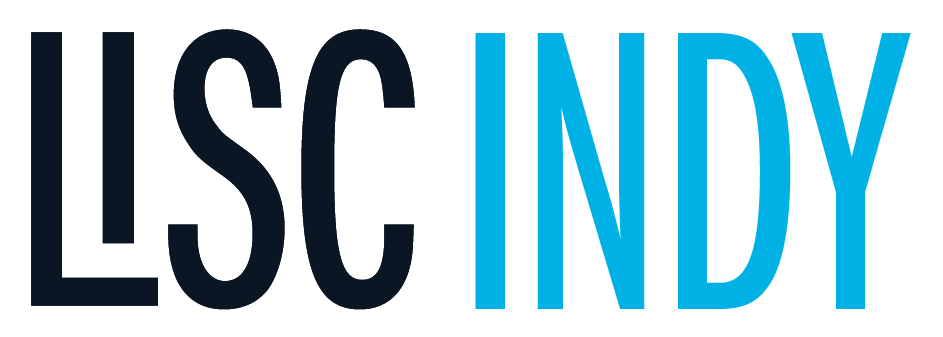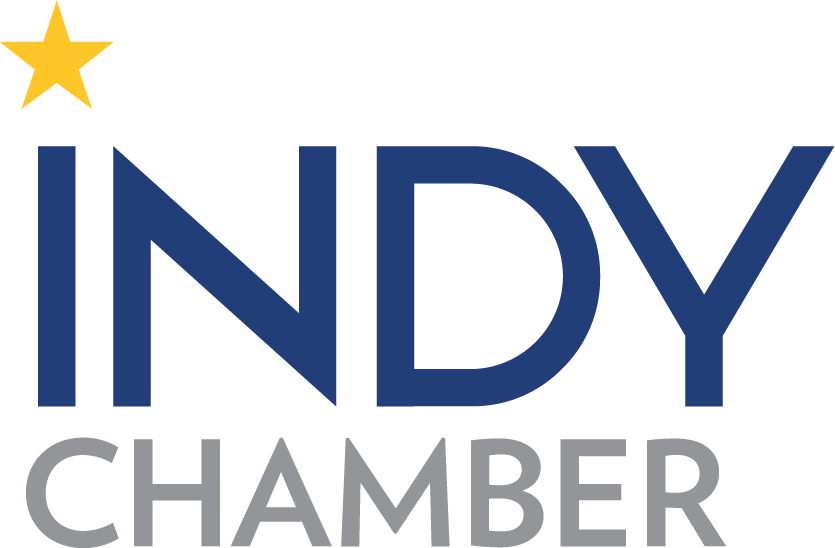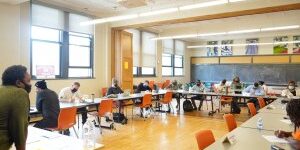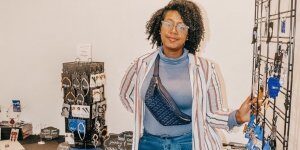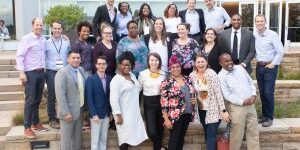Building on the success of Forward Cities' Community Entrepreneurship Accelerator initiative (2018-2020), we are pleased to continue our work in the community with this E3 Indy engagement. Aimed at catalyzing solutions for building a more equitable and sustainable entrepreneurial ecosystem in the community, our efforts — in collaboration with JPMorgan Chase Foundation — will lay the foundation for long-term resiliency for Black and Latinx businesses by focusing on equitable distribution of resources, including funding.
In the wake of the COVID-19 pandemic, this is a pivotal moment for Black and Latinx entrepreneurs and small business owners as barriers and gaps to starting and scaling businesses continue to disproportionately impact underrepresented groups. This effort will align key community stakeholders, amplify underrepresented voices of entrepreneurs and their champions, and galvanize collective action to create a strong foundation for inclusive economic growth that will serve as a model for other communities across Indiana – and nationwide.
For updates, subscribe to our monthly e-newsletter.
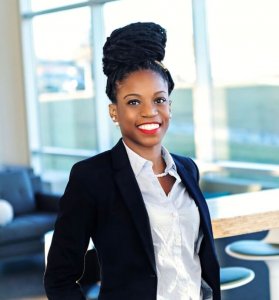
Magalie Yacinthe
E3 Indy Engagement lead
Magalie, an alumna of Florida Agricultural & Mechanical University, was born in Nassau, Bahamas, raised in Miami, F.L., and is one of five daughters to Haitian parents. She serves as Interim Executive Director of HUSTLE Winston-Salem, a nonprofit organization dedicated to inclusive entrepreneurship.
Magalie is also the CEO of YES Strategies & Solutions, a cost-effective consulting firm helping nonprofits and corporations accomplish successful programming and project management to carry out their missions. She serves as Board Chair of Forsyth Futures and Board Communications Chair for Winston-Salem Delta Fine Arts, Inc.
Magalie is a 2018 graduate of Leadership Winston-Salem, 2018 City of Winston-Salem Martin Luther King, Jr. Young Dreamers Award recipient, 2020 Winston-Salem Chronicle Business of the Month, 2020 Winston Under 40 Awardee, 2020 HOPE Outreach MLK Women's Day Awardee, the 2020 recipient of the Winston-Salem Forsyth County Arts Council R. Phillip Hanes, Jr. Young Leader Award, 2021 Triad Business 40 Under 40 Honoree, and a 2021 Triad Business Journal Power Player.
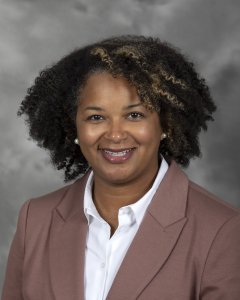
Starla D. Hart
E3 Indy Local Liaison
Starla D. Hart, MPA, has worked to enhance the lives of people in Indianapolis for more than 18 years and serves as Indiana University Health’s Director for the Mosaic Center for Work, Life and Learning – a new initiative to connect individuals with careers in healthcare.
In prior roles, Hart has served as the Director of Community Initiatives for 16 Tech Community Corporation, a Program Officer for Local Initiatives Support Corporation (LISC) Indianapolis, and Director of Neighborhood Partnerships at the Indiana University-Purdue University Indianapolis (IUPUI) Office of Community Engagement.
Hart earned a bachelor’s degree in Communication Studies and certifications in Non-Profit Management and American Humanics from Indiana University. She completed her master’s degree in Public Administration from Baruch College in New York City as part of the prestigious National Urban Fellows program.
Hart has served in a variety of volunteer and non-profit board and committee roles all while being a dedicated mother of 2. In her "free" time, she dabbles in entrepreneurship, loves a good book, and is a wine and self-care enthusiast.
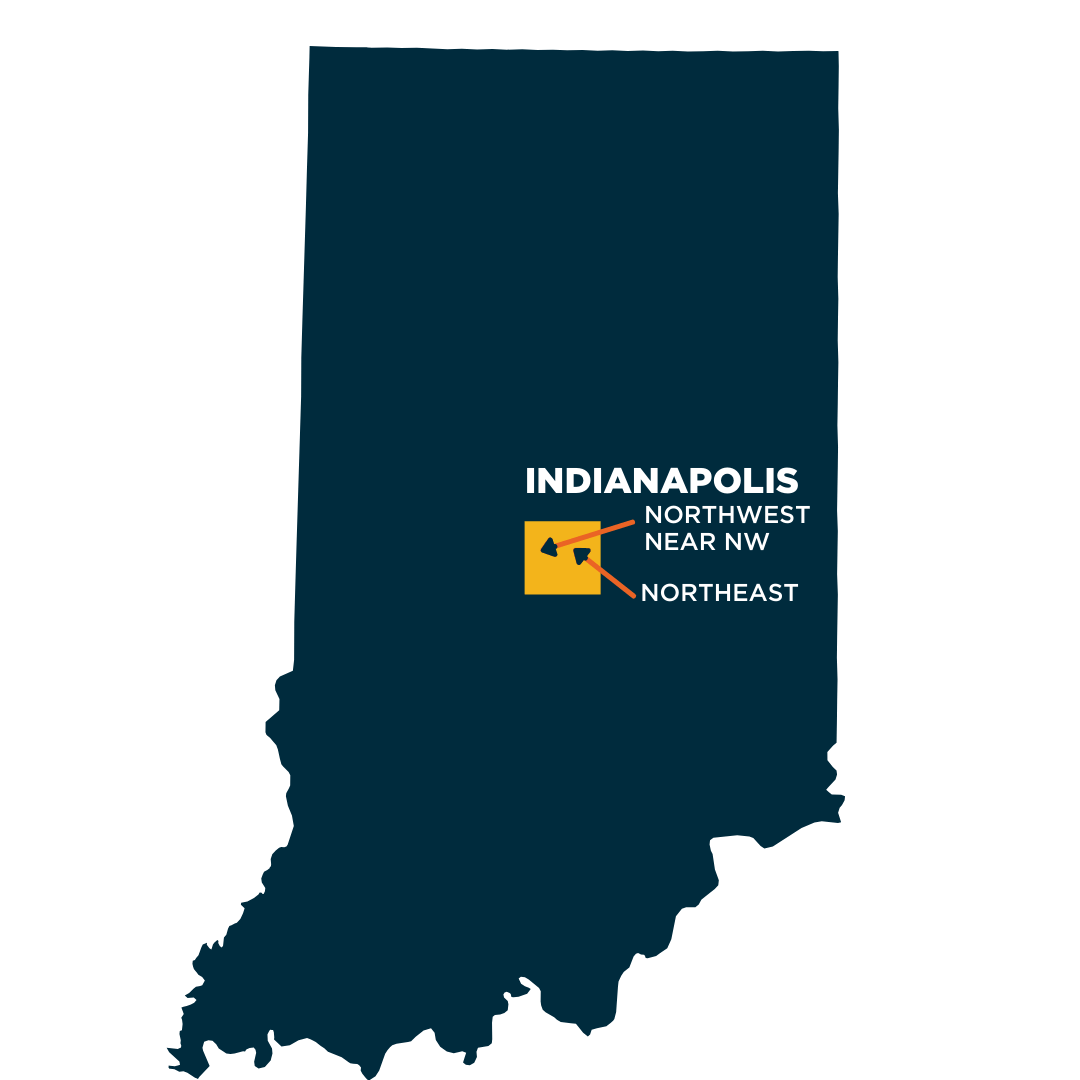
IN MID-2018 FORWARD CITIES BEGAN ENGAGING A DIVERSE GROUP OF CROSS-SECTOR LEADERS IN INDIANAPOLIS TO DEVELOP A SET OF DATA-INFORMED, HUMAN-CENTERED, COMMUNITY-LED, AND ACTION-ORIENTED STRATEGIES TO FOSTER COLLABORATION WITH THE GOAL OF BUILDING A STRONGER AND MORE EQUITABLE ENTREPRENEURSHIP ECOSYSTEM IN INDIANAPOLIS.
The neighborhoods of Near West, Near Northwest, and Northeast corridor were identified for the launch of pilot projects to activate and provide direct support to neighborhood businesses through a neighborhood-based co-working space, access to a low barrier business capital initiative, and marketing support to help Black-owned businesses thrive.
Through the generous support of our four funding partners (Central Indiana Community Foundation, LISC Indianapolis, United Way of Central Indian and the Indy Chamber) Forward Cities has worked with a set of cross-sector community stakeholders to:
- Discover Indianapolis' current and evolving entrepreneurial landscape
- Design interventions to persistent barriers to entrepreneurship and small business growth among entrepreneurs and small business owners of color
- Deliver measured impact of the interventions for sustainable change
Discover
We assessed the barriers facing local Black and Latinx entrepreneurs to establish a baseline from which to measure progress.
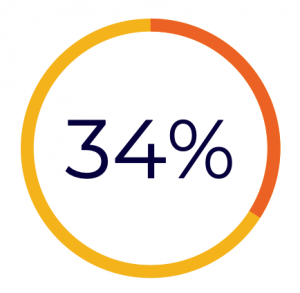
WEALTH GAP
34 percentage point difference in the proportion of families living in homes they owned: white (non- Hispanic) 66% vs Black 32%

Earnings gap
Among full-time workers, white males made an average of $51,864 per year versus $31,874 for Black Females and $27,256 for Hispanic Females
PILOT NEIGHBORHOODS ENTREPRENEUR SURVEY, 2019
(Individuals who currently owned a business or were trying to start a business were asked about their most pressing needs)

Less than 1/2 of participants (35%) reported there were aware of the full range of entrepreneurial support organizations (ESOs) across the city
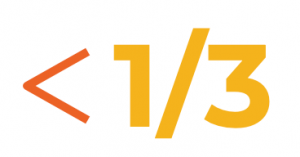
Less than a third (25%) reported that they use the full range of supports available from ESOs

22% of participants reported that organizations were “very successful” or “completely successful” at working together to support entrepreneurs and small business owners in Indianapolis
Design
We worked with local stakeholders to develop 2 Minimum Viable Solutions designed to address barriers found in the Discovery Phase.
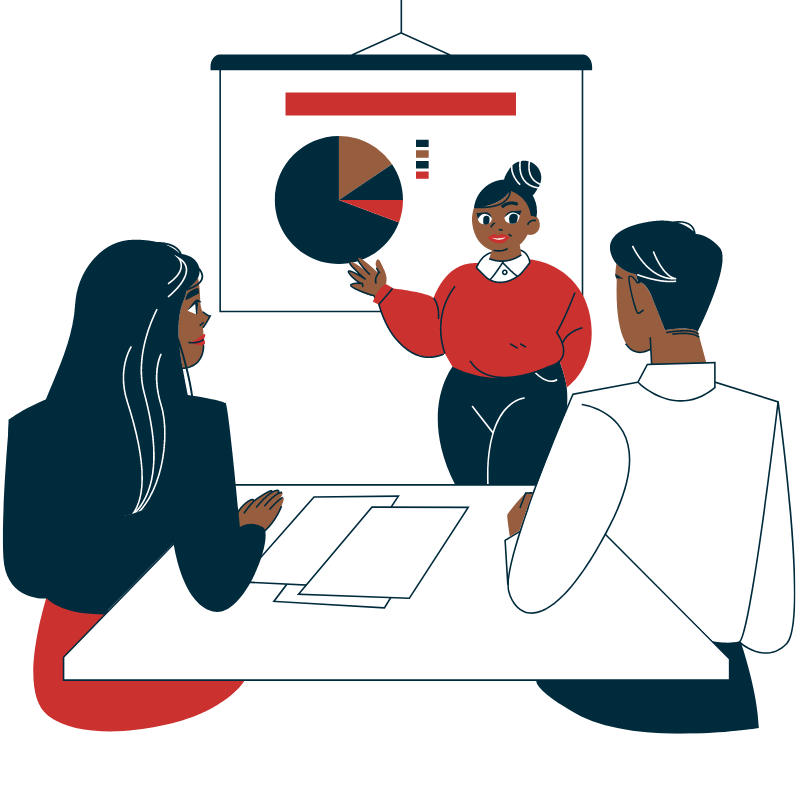
1. neighborhood coworking space with business incubator
The absence of a culturally-affirming entrepreneurship hub for people from underserved communities, specifically Black and African American entrepreneurs and small business owners was identified as a barrier to equity in entrepreneurship. The pop-up coworking space offered a proximate, welcoming space for existing and aspiring entrepreneurs to gather, work, and learn about resources to advance their individual ventures.
Although, the space was temporary, it was modeled after more robust full services entrepreneurship hubs, providing for the day to day office needs of entrepreneurs with available business office equipment and meeting space.


2. Business Marketing package & pivot to grant program
Marketing support was a significant need among entrepreneurs and small business owners of color in the area. The Business Marketing Package was intended to provide wrap-around marketing services, such as: a marketing workshop, free basic marketing materials package and/or back-office marketing and design support staff for a 3-6 month period. Due to the COVID-19 pandemic, the program pivoted to a grant lottery for entrepreneurs to receive funding for their most pressing needs.
THE remaining balance of funds become a weekly drawing for a $500 grant for entrepreneurs in target neighborhoods.
3. revolving 0% interest loans
The goal of this revolving loan program was to ensure that an entrepreneur can purchase the goods or equipment needed to land a contract for which they otherwise would have to decline. Loans ranged from $1,000-$5,000 through an application that didn't require credit underwriting but rather relies on character-based underwriting similar to KIVA. A credit counseling course was offered to all approved applicants.
Any declined loan applications were sent to a small committee made up of the local director and several innovation council member volunteers who examined the application and vouched for the impact the business has in the community.
Deliver
We evaluated our interventions' success using the baseline reported in the Discovery Phase.

89% of participants reported that (due to the space) they are aware of resources that can help them meet the majority of their needs
59% reported that they had never worked with an entrepreneur support organization before coming to the coworking space
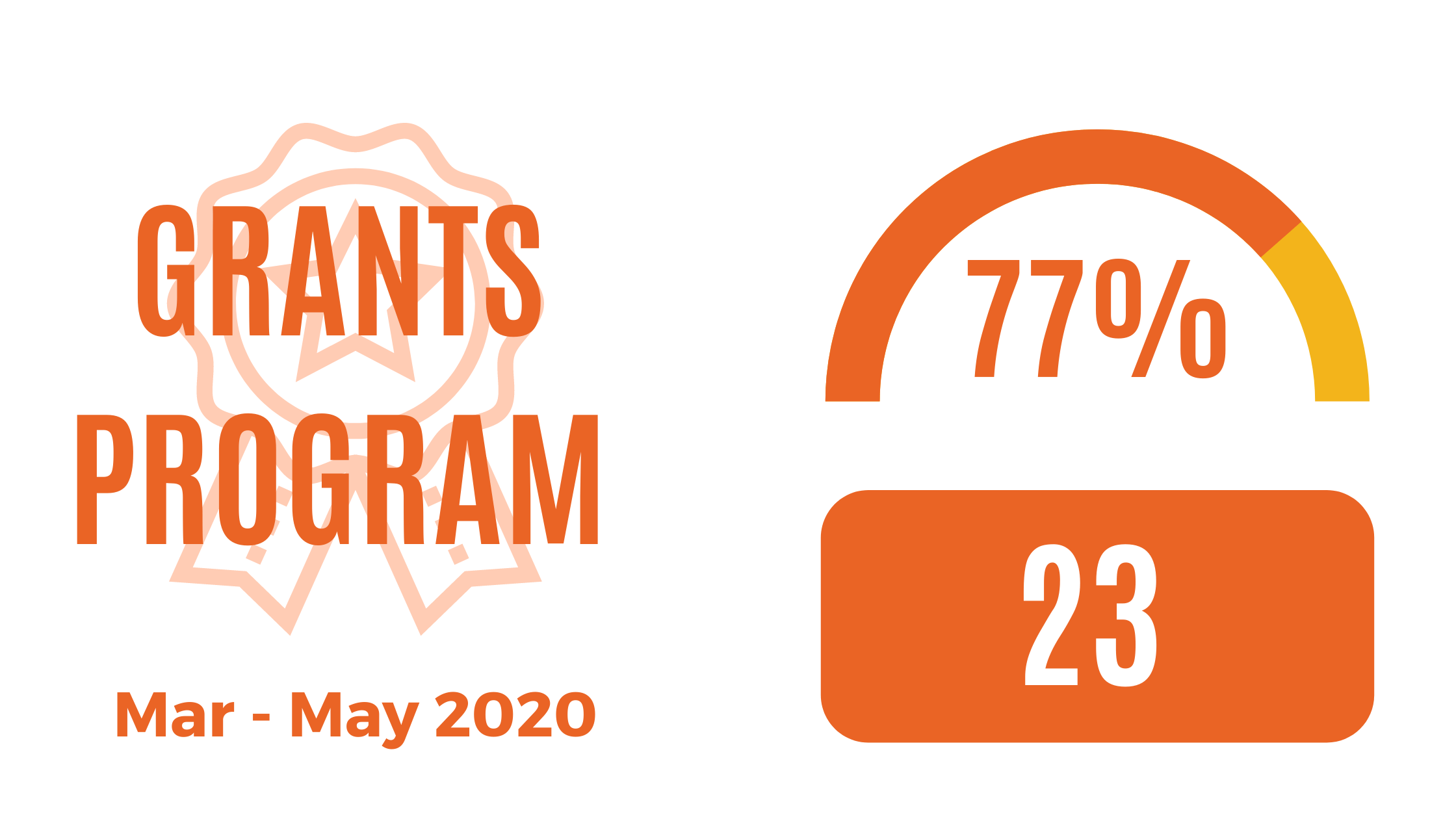
77% of participants were from selected pilot neighborhoods of underserved communities
23 $500 grants were dispersed to 23 entrepreneurs from pilot neighborhoods
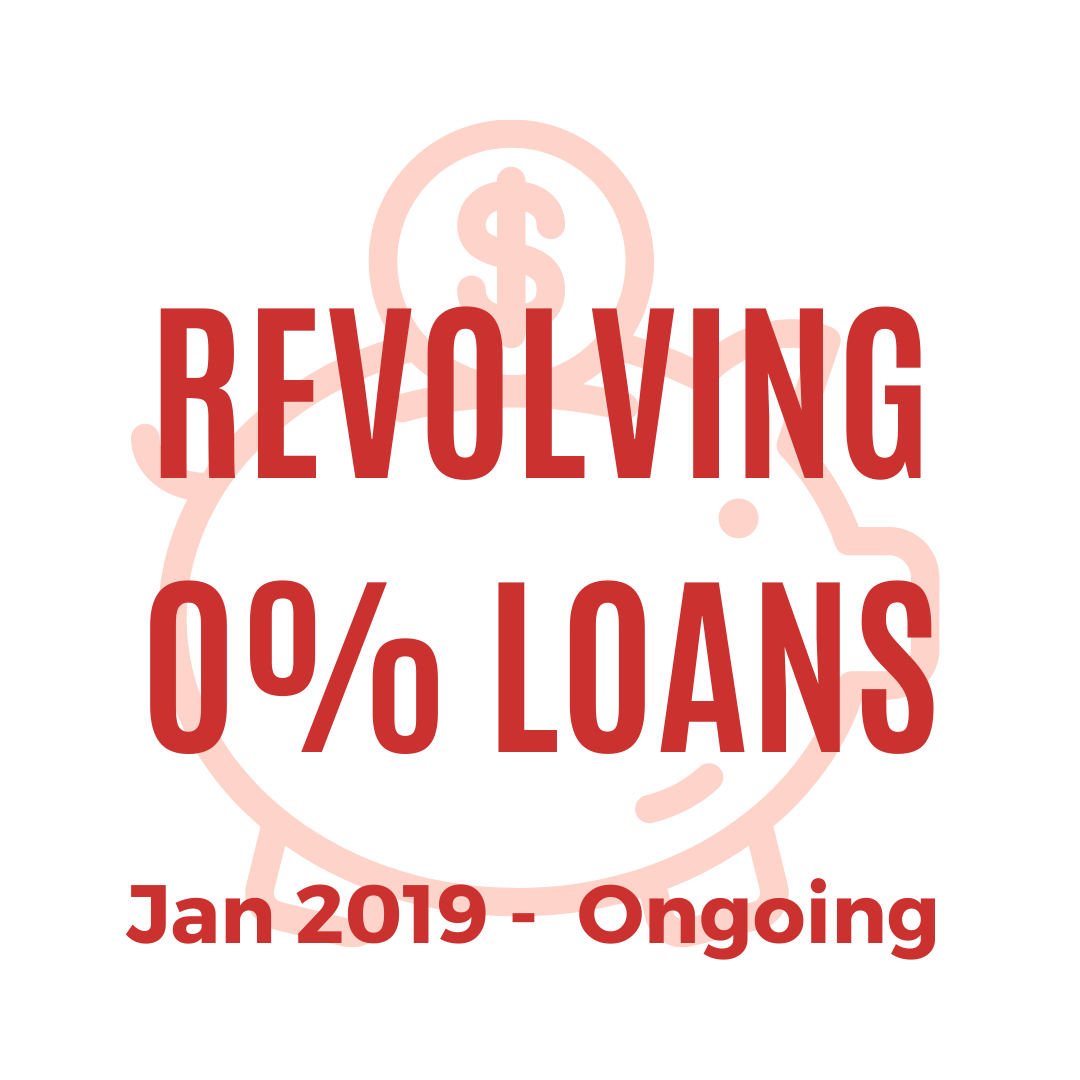
At the time of the evaluation, this program had not yet been implemented as planned, limiting our ability to evaluate the MVS. Two loans were given to business owners in the pilot neighborhoods meeting the eligibility criteria but both were over the planned amount for the microloan program ($25,000 and $15,000). A third loan for $5,000 was within the range planned for the microloans program but the recipient did not live in the included zip codes for the program.
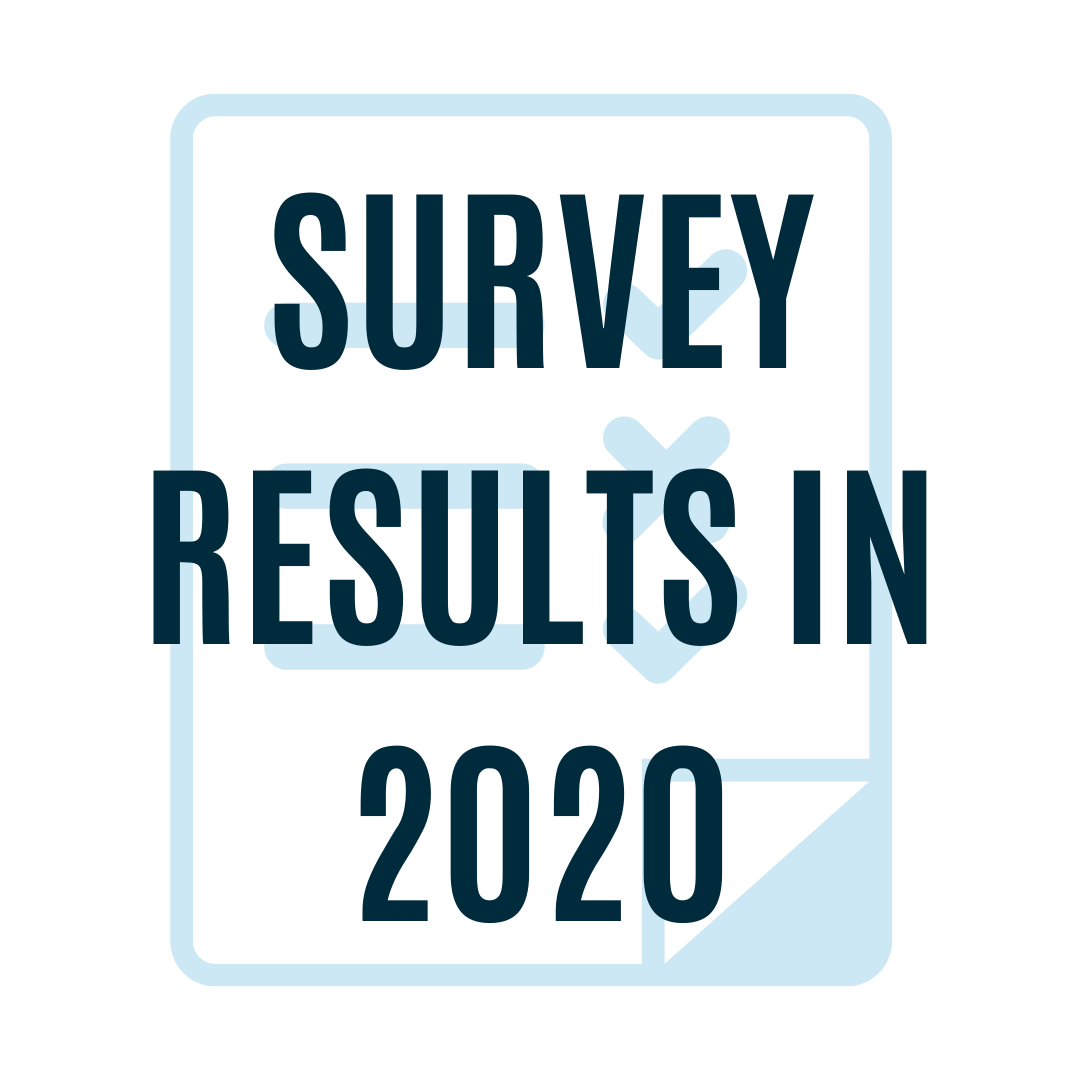
56%, up from 35% in 2019, reported that they are aware of full range of supports available to them as an entrepreneur
58%, up from 25% in 2019, reported that they use the full range of supports available from ESO's
28%, up from 22% in 2019, reported organizations were "very successful" or "completely successful" at working together to support entrepreneurs and owners
Indianapolis: By the Numbers
The Forward Cities Research and Evaluation Team strives to understand the existing entrepreneurial environment as well as the current opportunities and barriers that exist for underrepresented entrepreneurs in our communities. The interactive Data Pages on the E3 Dashboard include information that has been compiled from the U.S. Census Bureau and surveys, produced by Forward Cities, that have been deployed in Indianapolis.
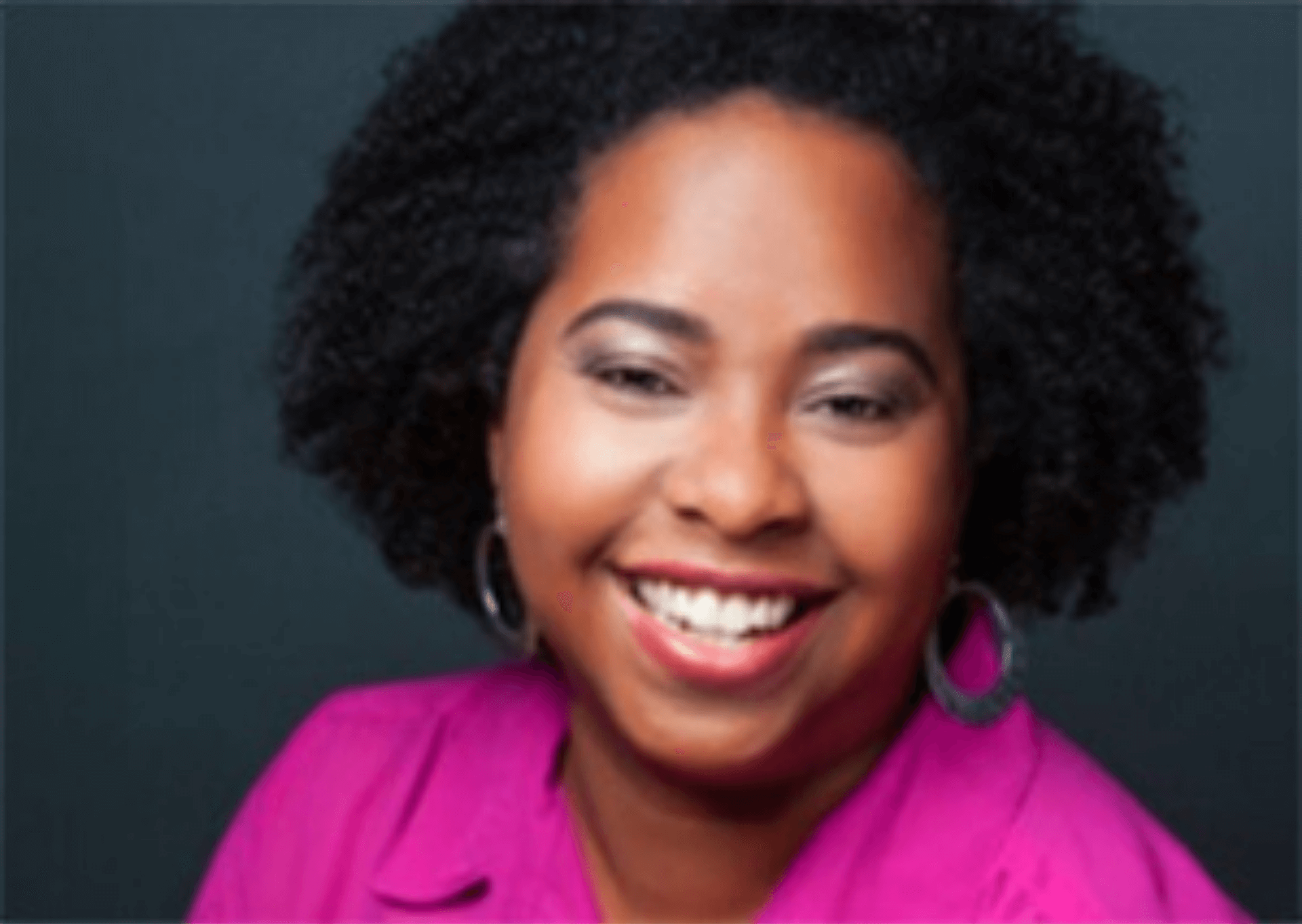
Kaliah Ligon
KALIAH LIGON
LOCAL DIRECTOR, INDIANAPOLIS
(2018 - 2020)
Kaliah Ligon, the Indianapolis Inclusive Innovation Fellow, has served the Indianapolis community for the past ten years in several roles in grant-making, community building, outreach and organizing. Having worked for the city’s public transit system as the manager of outreach, Indiana’s largest non-profit hospital system as a community outreach project manager, and a capacity-building director for a grassroots leadership development organization, Kaliah has touched the lives of thousands of Indianapolis residents. Kaliah studied at the Indiana University School of Public and Environmental Affairs earning a master’s degree in Public Administration with a concentration in Policy Analysis. Kaliah is married to her childhood sweetheart, Chris, and they have three children ages 20, 15, and 13. She enjoys traveling and meeting new people.
Kaliah served as the Local Director for Indianapolis from 2018 - 2020.
Special Thank You
We're grateful for being able to partner with the following organizations to make an impact in Franklin County:

